Filter by Categories
Jesus Christ Is Our Hope
Sermonette by Ted E. BowlingRahab considered the red cord a symbol of her faith and hope that she and her family would be rescued from destruction. Her faith was not wasted but rewarded.
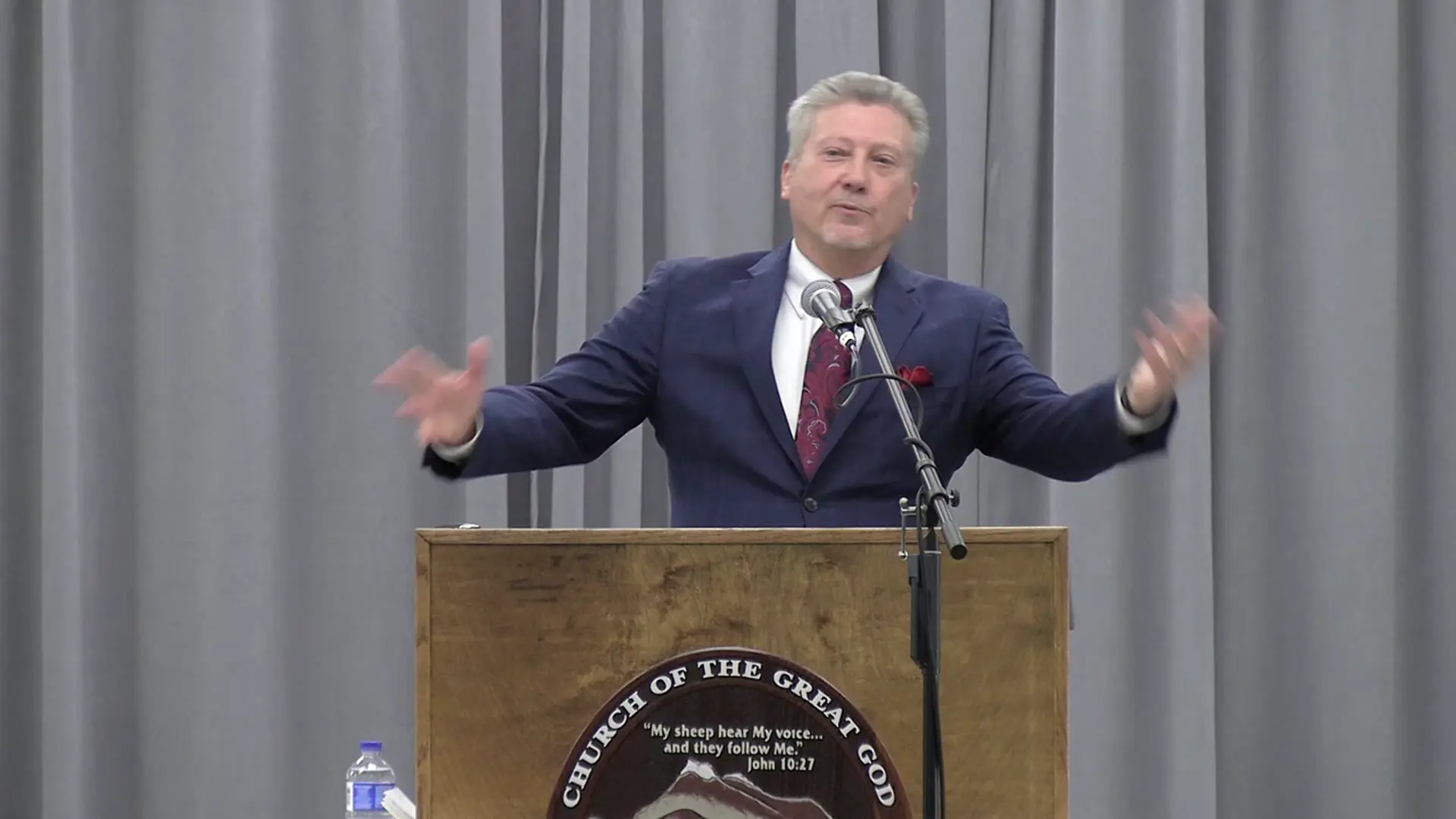
Jesus in the Feasts (Part Six): The Eighth Day
Feast of Tabernacles Sermon by Richard T. RitenbaughIn this sermon series on Jesus in the Feasts, the primary purpose of the holy days is to point us to Christ in His various offices and roles. Christ is our Passover in the Feast of Passover. In Unleavened Bread, He is our Bread of Life. In Pentecost, He is our Firstfruit. In Trumpets, He is our Divine King who is present. In Atonement, He is our Sacrificial Offering. In the Feast of Tabernacles, He is the Perfect Tabernacle, the One we are supposed to live in throughout our journey. Finally, in the Eighth Day, He is our All in All, our Everything. The Eighth Day, as a sacred assembly, holds a special purpose, distinct from other holy convocations. It signifies closing, stopping, restraining, and retaining the lessons of the feasts. In terms of pointing us to Christ on this day, He encapsulates all the lessons, examples, reasons, hope, and good things revealed through God's festivals. He is the source of the Word, and in Himself, He is everything good, right, and true. As He declares in John 14, He is the Way, the Truth, and the Life, meaning He is everything we need to attain God's Kingdom. In Ephesians 1, Paul emphasizes that Christ fills us with divine fullness as His Body, sharing in all that He is. Christ imparts divine gifts and powers to us, ensuring we lack nothing in every way. In Revelation 1, John introduces Christ with titles reflecting His accomplishments and roles, highlighting His love and sacrifice for us. Christ Himself speaks comforting words using merisms, declaring He is the Alpha and the Omega, the Beginning and the End, the First and the Last, affirming He is our Everything. He assures us not to be afraid, for we lack nothing in Him, and He is sovereign, in control, providing all we need to overcome and endure.
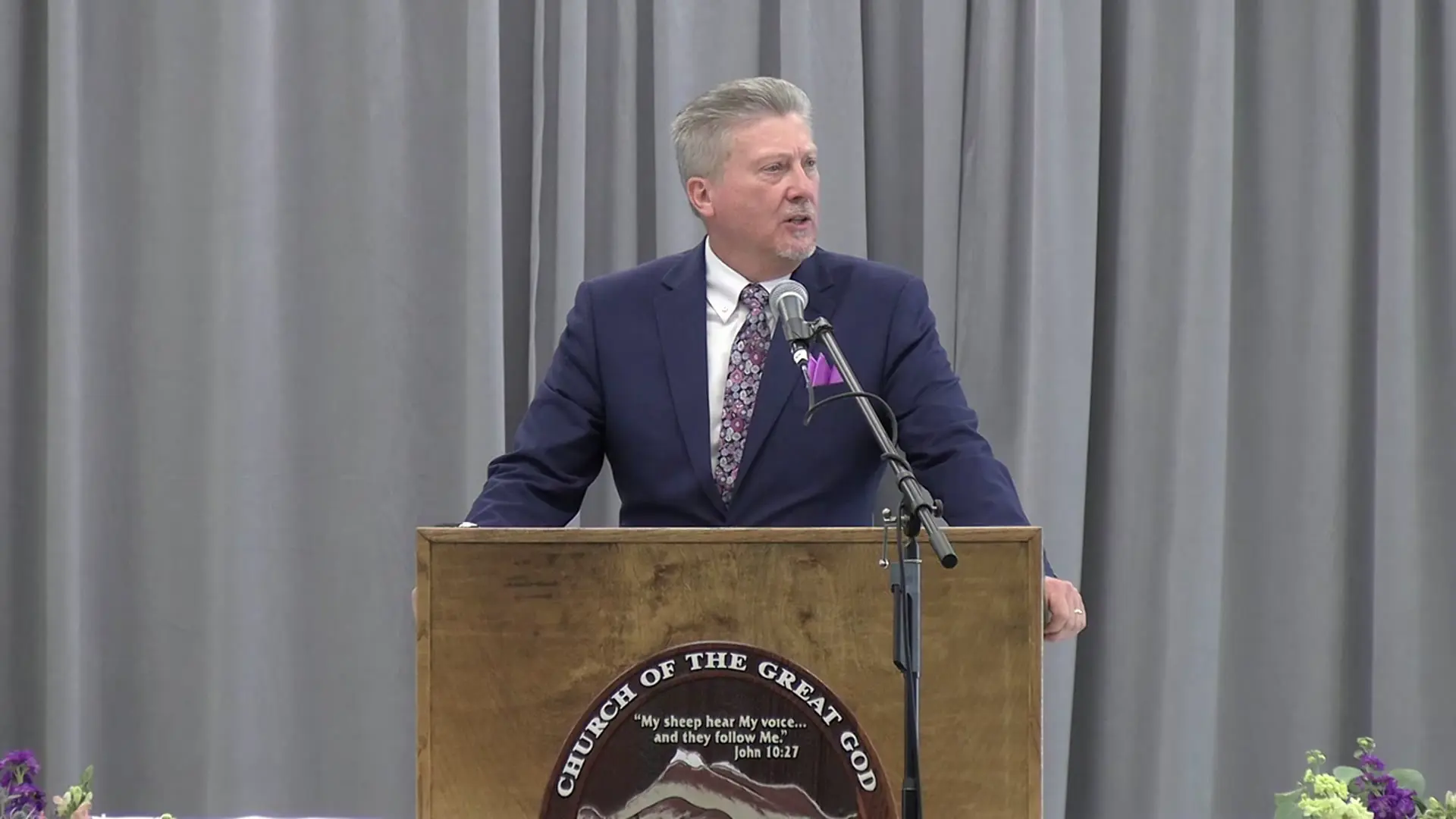
Jesus in the Feasts (Part Five): Tabernacles
Feast of Tabernacles Sermon by Richard T. RitenbaughWe should consider the temporary dwellings as a foreshadowing of Christ as our ultimate Tabernacle—the divine presence with and within His people
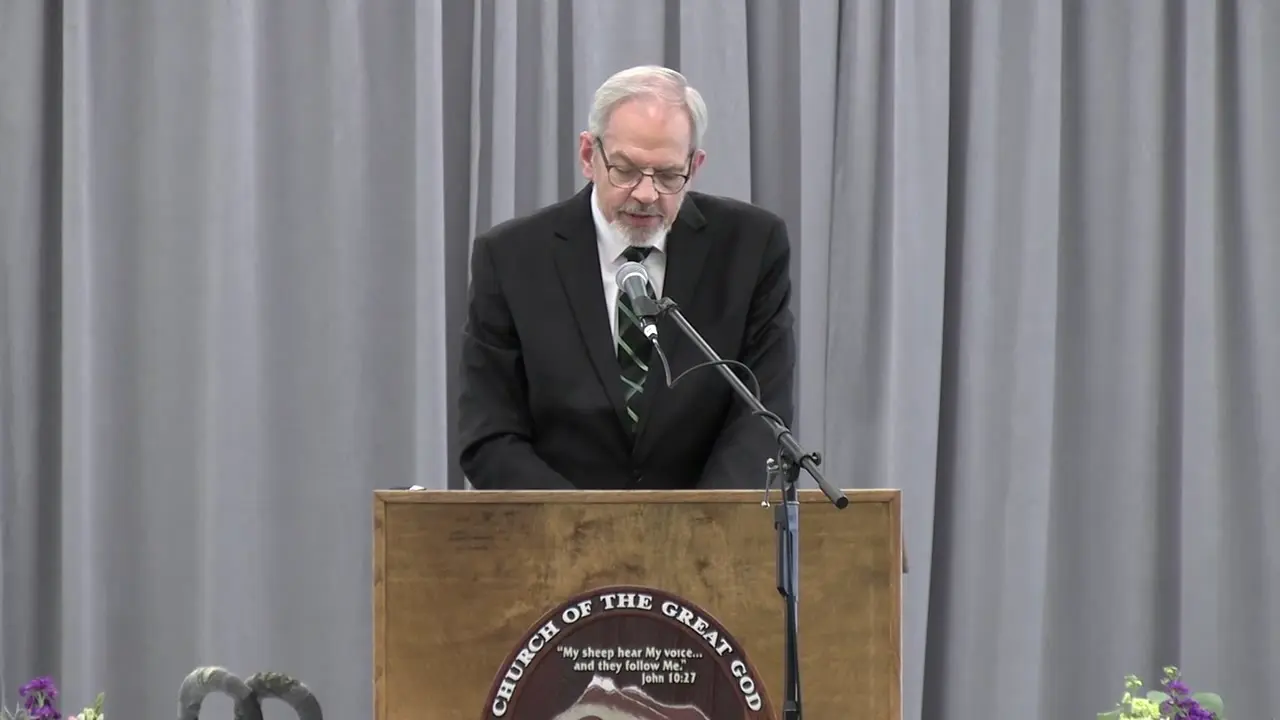
The Bride of Christ (Part One)
Feast of Tabernacles Sermon by Mark SchindlerGod's called and chosen people are being prepared, under Christ's direction, to become His perfect and faithful helpmate for eternity.
The Eighth Day (2019)
Sermonette by David C. GrabbeThe Eight Day (or Last Great Day) has little written about it, but the patterns of Scripture reveal much about the abundance of this holy day.

Jesus in the Feasts (Part One): The Bread of Life
Sermon by Richard T. RitenbaughJesus Christ stands as the central focus of the holy days, embodying their deepest spiritual significance. These sacred observances are not primarily about outlining the prophetic timing of God's plan for salvation, but rather about revealing the character and work of the Son of God, our Redeemer, High Priest, and King. When Jesus opened the minds of His disciples, He directed their understanding to all things concerning Himself in the Scriptures, emphasizing His pivotal role over mere prophetic fulfillment. In the context of the Feast of Unleavened Bread, Jesus is identified as the true bread of life that came down from heaven. This feast underscores the necessity of consuming Him spiritually every day, paralleling the command to eat unleavened bread for seven days. By ingesting His character, teachings, and examples through diligent study, we are nourished, sustained, and transformed spiritually, fostering inner purity and outward righteousness. This ongoing practice, reminded annually through the feast, aids in developing sincerity and truth, helping us grow into His image and cultivate the mind of Christ. Passover also centers on Jesus, as He is explicitly named our Passover, sacrificed for us. His death fulfills the type of the Passover lamb, securing our redemption, justification, and forgiveness by grace. Beyond this, the Unleavened Bread type extends to our state of being unleavened, cleansed of corruption through His sacrifice, urging us to keep the feast with the unleavened bread of sincerity and truth, reflecting both inward holiness and outward manifestation of Christian character. Across all holy days, the focus remains on something Christ does, highlighting His agency, mercy, love, blessings, and providence. As the bread of life, He leads us in a walk of faith and righteousness toward the Kingdom of God, doing the heavy lifting in preparing us for glory. His role as the Head of the church is to teach us how to be like Him, a process initiated at our calling and reinforced through these annual observances. Thus, the holy days serve as a training mechanism, emphasizing spiritual growth through study, contemplation, and living out His example in good works, with Jesus Christ as the perfect Model at the core of it all.
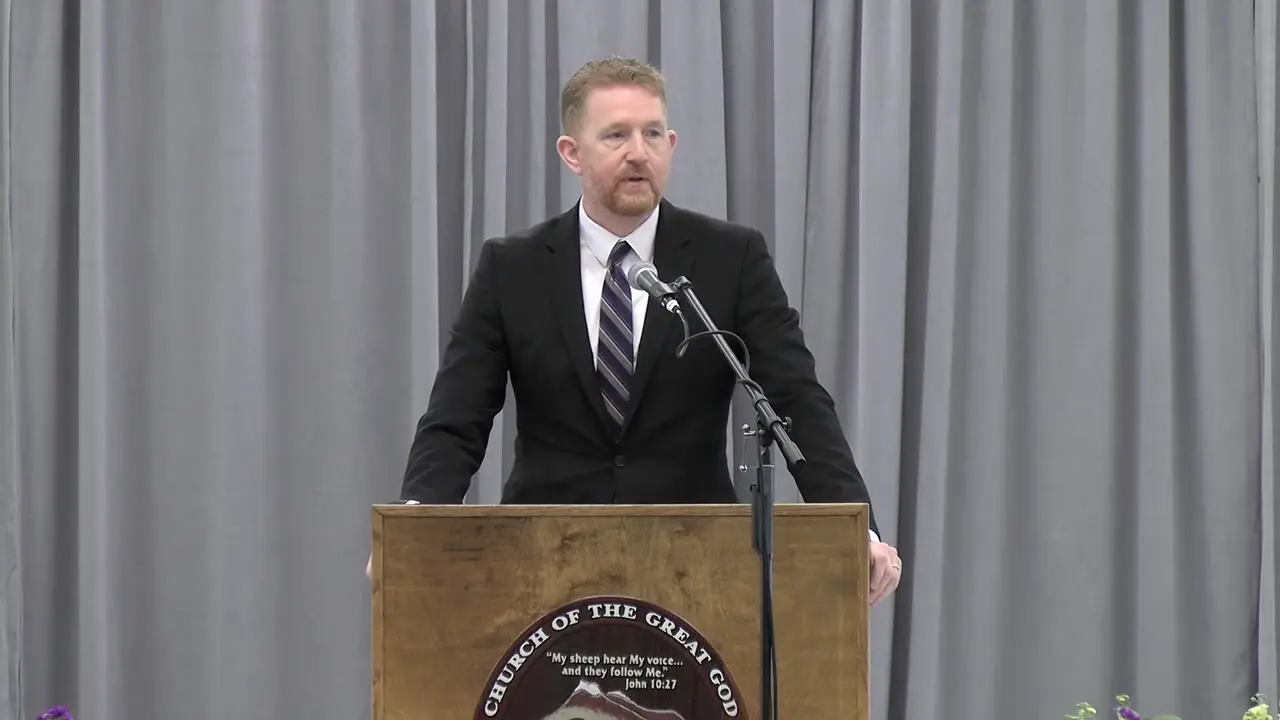
The Feasts of Tabernacles and Unleavened Bread
Feast of Tabernacles Sermon by David C. GrabbeUnleavened Bread and Tabernacles mirror each other. Through comparing and contrasting, a complete picture of salvation through Christ emerges.
Jesus in the Feasts (Part Three): Divine King
Sermon by Richard T. RitenbaughThe trumpet blast is both a memorial and a proclamation that Almighty God is present, powerful, and personal, reminding us how we must respond.
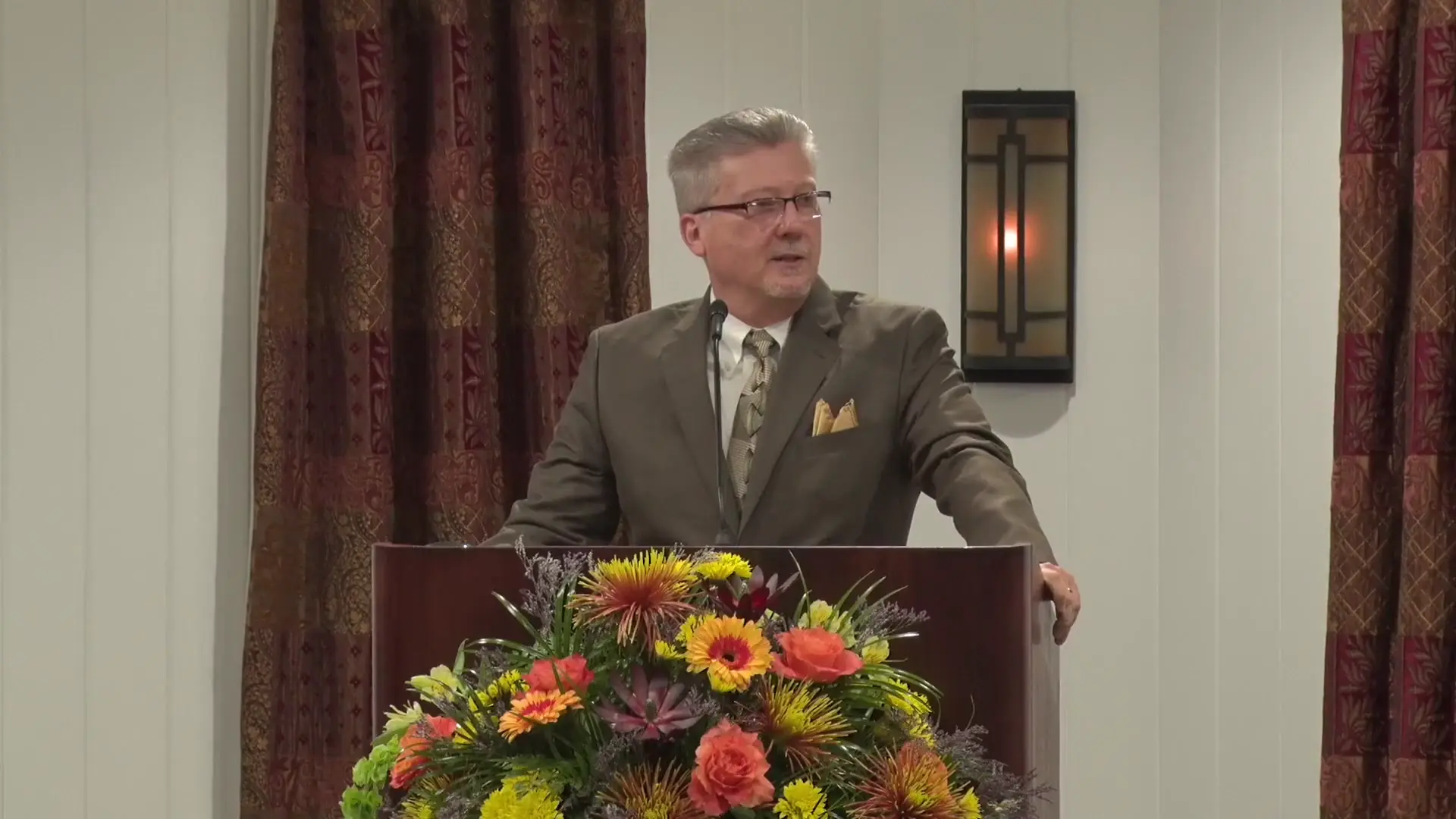
Jesus in the Feasts (Part Four): Atonement
Sermon by Richard T. RitenbaughIsaiah 53 and passages from the New Testament substantiate Christ's dual role in shedding His blood and bearing away sins, thereby reconciling humanity to God.

Jesus in the Feasts (Part Two): Firstfruits
Sermon by Richard T. RitenbaughThe central figure of Scripture is God Himself, particularly the Son, Jesus Christ, the Word. The real subject of the Word of God is our Savior and soon-coming King, Jesus Christ, and everything in the Bible revolves around Him. He is the focus of the Old Testament and New Testament alike, appearing in specific prophecies, symbols such as sacrifices and Tabernacle furnishings, and as the anti-type of many historical figures who prefigure Him. The holy days on God's sacred calendar hold a vital spiritual purpose beyond prophetic outlines. Their most important aspect is their incisive focus on Jesus Christ. God desires our eyes to be on Christ first, as the feasts reveal the character and work of the Son of God, our Redeemer, High Priest, and King. He is everything, the Head without whom we do not function or exist. In the context of Pentecost, Jesus Christ is the Firstfruits, the preeminent firstfruit both chronologically and in quality. As the first of the spiritual harvest, He is the model and standard for the elect to emulate. On wave sheaf day, He is the beginning of God's spiritual harvest, the firstborn from the dead. On Pentecost, He is the Firstfruit par excellence, the One whom others must follow to attain the same glory. Christ's call to His disciples to follow Him sets the tone for discipleship, urging them to imitate His actions and walk as He walked. Whether serving others, suffering without complaint, or keeping God's commandments, the instruction remains to do as He did. He never strayed or sinned, providing an unerring example for us to follow on the path to the Kingdom of God. As the trailblazer, Jesus Christ has forged the path through this world, showing the way to glorification. He is the way, the truth, and the life, the sole path to the Father's house. Following His trail, adhering to His example, ensures that we reach the same destination. His life is the unique way that leads to becoming a firstfruit in the Kingdom of God. On Pentecost, Christ remains the center and focus. He is the dispenser of the Holy Spirit, given to those who repent and are baptized, enabling them to walk the path to God's Kingdom through His leadership and example. Without Him, there is no understanding, overcoming, growth, or production of fruit. Abiding in Him, emulating Him in everything, is essential to becoming firstfruits. The goal is to be exactly like the Firstfruit, the Head, by forsaking the human way and embracing the godly way. The truth is in Jesus Christ, and we must put on Christ, living as God created us through salvation to live in true holiness and righteousness. As our Passover, our Unleavened Bread, and our Firstfruit, He leads and guides us in our walk of faith to the Kingdom of God, providing the example, instruction, gifts, help, and strength that make everything possible.
The Temptations of Christ: Behold, the Lamb of God
Sermon by Mark SchindlerWithin the abundance of gifts God desires to bestow upon us, both physically and spiritually, He has established the annual holy days to be among the most satisfying and enjoyable times of the year. However, we must not allow the days themselves to become the sole focus of our attention, lest we forget their significance in God's plan and purpose, along with our own duties and responsibilities within them. Without Jesus Christ as the central focal point throughout these days, we risk merely taking time off and falling into the traps set by satan. The Father and Son never cease Their work, and neither can we, as God's planning and execution to bring us into an eternal relationship with Him are carried out with precision in every detail. As we observe these holy days, particularly the Memorial of Shouting, which stands as a pivot point among God's holy days, we must focus on the powerful work of the Word of God, who became Jesus Christ, the perfect Lamb of God. This memorial looks both backward and forward, emphasizing His role in God's plan. Jesus Christ, as the Son of God and the Lamb of God, accomplished what no other could, perfectly overcoming the lying temptations of the ruler of this world with truth, providing the ultimate answer to the deepest questions of faith. The holy days are vital tools given by God to deepen our appreciation for His meticulous planning and to fulfill our responsibilities in service to the Body of Christ with diligent care and thanksgiving. We must stand behind the shield of faith in Jesus Christ, learning to live as He lives, and uphold the Word of God in the face of challenges.
John 7:37 Examined (Part One)
Feast of Tabernacles Sermon by John W. Ritenbaugh (1932-2023)The Eighth Day (or Last Great Day) is a separate festival from the Feast of Tabernacles, which can only derive its significance in the New Testament.

Teachings from Tabernacles
Feast of Tabernacles Sermon by David C. GrabbeThe temporary dwellings remind us that nothing earthly is permanent nor our true inheritance, and that our focus must be on what God is doing.
Teachings From Tabernacles (2021)
Feast of Tabernacles Sermon by David C. GrabbeIf we neglect our cultivation of spiritual fruit during the year, the harvest will reflect that. The fruit of one's labors will be evident at harvest time.

Why Are We Here and What Is Our Focus?
Feast of Tabernacles Sermon by Mark SchindlerGod has a plan to bring all to Christ, but each in his own order. We cannot have a proper understanding of the plan if we do not keep Christ as the focus.
The Handwriting Is on the Wall (2021)
Feast of Tabernacles Sermon by Mark SchindlerWhen comparing the Jewish Disneyland Succoth Extravaganza with the Holy Days kept by Israel, it is obvious that the veil still bars their understanding.